Central America
President Bukele’s government inaugurates Phase II of the El Salvador Hospital
Nayib Bukele, President of El Salvador, announced yesterday on national TV that on August 7, Phase II of the El Salvador Hospital had been inaugurated. The President said that there are already 25 patients being treated in this area.
“Many people wondered why we did not inaugurate Phase II of the El Salvador Hospital, and it was because the Director needed to use these beds immediately, since Phase I was already full. We did not organize an event, but the Salvadoran people inaugurated it,” said President Bukele.
The President added that 1,125 beds are available across the country’s public hospital network. “El Salvador has become the country with the most intensive-care beds in all of Central America. El Salvador has more ICU beds available than all the countries in Central America combined,” he added.
The country with the fewest COVID-19 cases
Despite no state of emergency and constant hold-ups by Deputies in the Legislative Assembly, El Salvador remains the country with the lowest number of coronavirus cases in Central America. Recent rates result from the early actions taken by President Nayib Bukele’s government.
To date, El Salvador has 20,423 confirmed cases. Costa Rica has 22,802 cases, Honduras 46,973, Guatemala 56,189 and Panama 73,651. In Nicaragua, the information available is limited and doubtful.
Among the early actions taken by President Bukele’s government, even before the WHO declared COVID-19 a pandemic, are: Health controls at seaports, airports and land borders. This made it possible to identify the first cases and to contain the spread of the virus.
The quarantine also proved to be an effective measure. While it was in force, the infection curve was flat. However, since the quarantine was lifted and legal resources were taken away from the Executive, cases have been on the rise, with an average of 400 cases per day over the past two weeks.
“Despite the rulings, we will continue to fight the pandemic with what we have,” said President Bukele.
Central America
Bukele warns crime can become a ‘parallel government’ during visit to Costa Rica
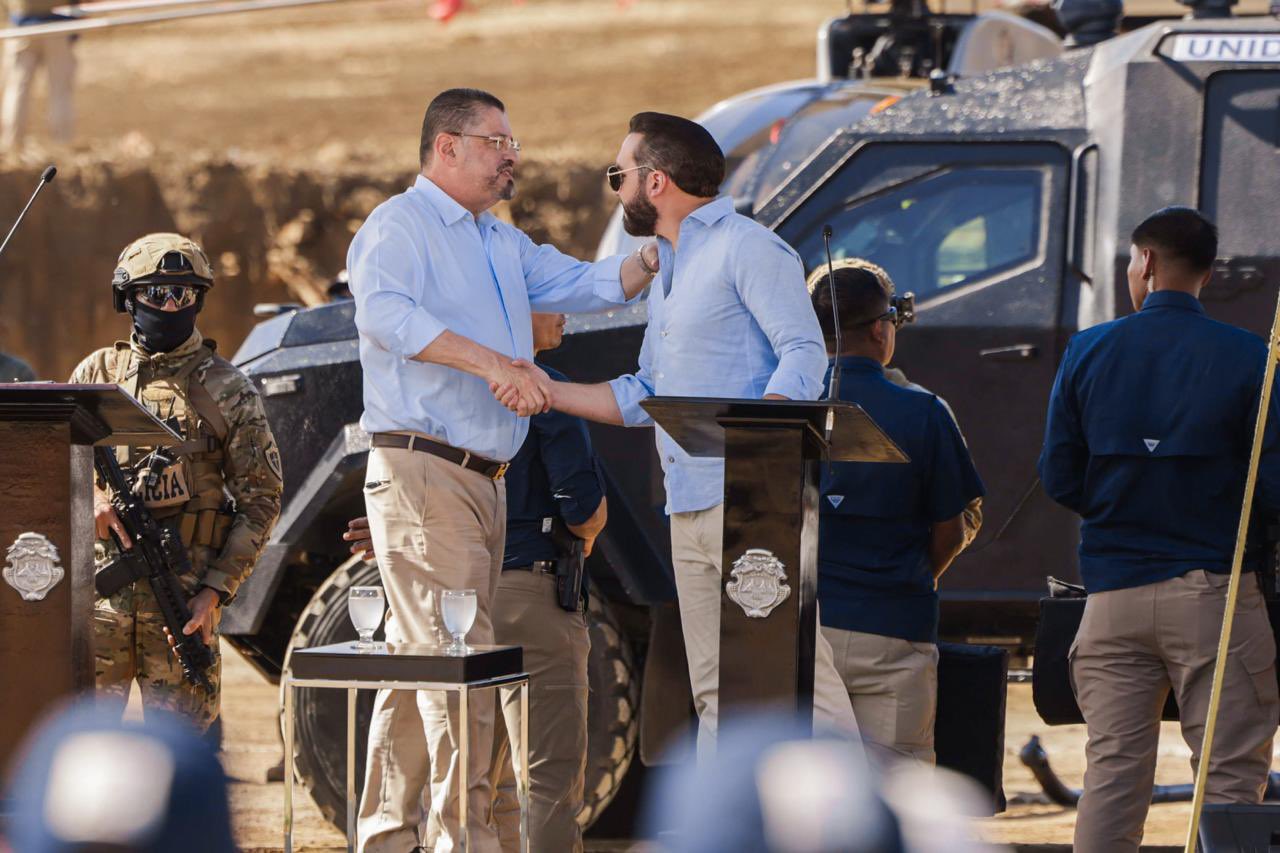
El Salvador’s President Nayib Bukele, accompanied by his official delegation, arrived at the site where the new facilities of the Center for the High Containment of Organized Crime (CACCO) are being built. Costa Rican President Rodrigo Chaves welcomed Bukele, marking the start of the cornerstone-laying ceremony.
“Thank you very much to President Rodrigo Chaves and his cabinet for this invitation,” Bukele said, noting that this was his fourth meeting with the Costa Rican leader in the past two years.
In his address, Bukele stressed that insecurity is a problem that undermines all aspects of society. “When insecurity advances, jobs collapse, education becomes more difficult, and the economy slows down. People stop going out, businesses close early, investment leaves, and tourism disappears,” he said.
The Salvadoran president warned that if crime continues to grow, it can turn into a parallel government—“the dictatorship of gangs, criminals, and drug traffickers.” He added that this situation has not yet occurred in Costa Rica and that the country is still in time to prevent it.
Central America
U.S. and El Salvador maintain close partnership, embassy says
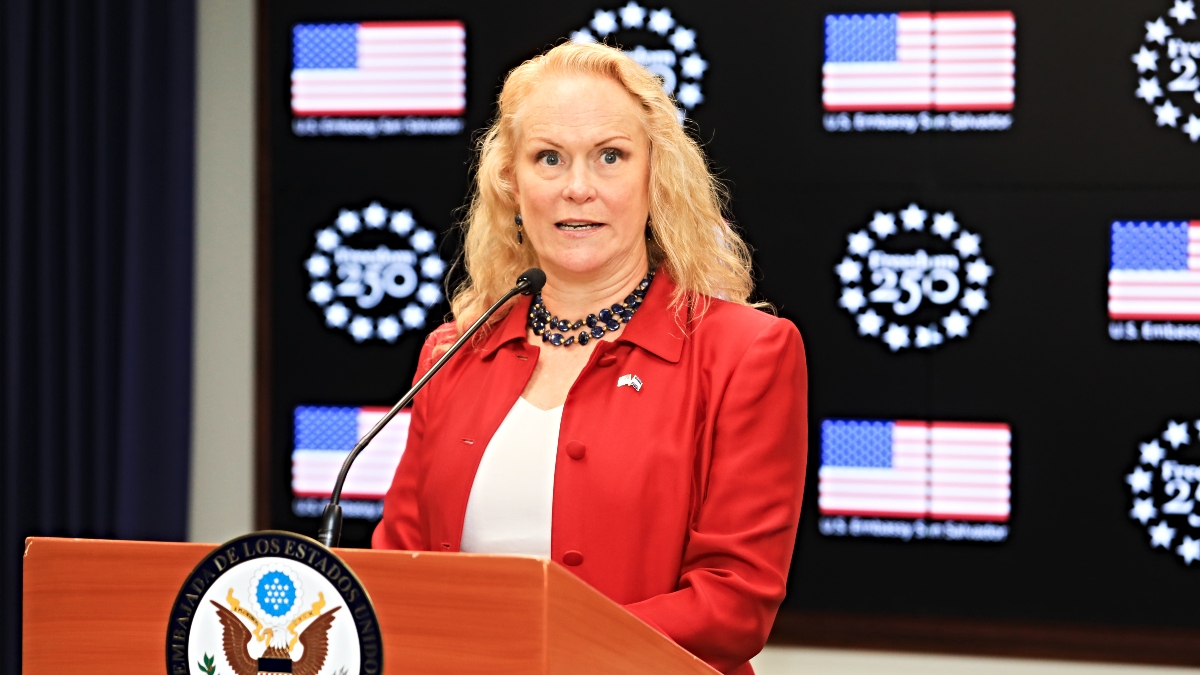
The Chargé d’Affaires of the United States Embassy in El Salvador, Naomi Fellows, said on Monday that relations between the two countries remain “very close” and that both governments continue to work together in several areas of shared interest.
Speaking at a press conference, Fellows highlighted the longstanding friendship between the United States and El Salvador, as well as the achievements reached through bilateral agreements.
“In terms of our relationship with El Salvador, it continues to be very strong, very close. We are partners on security issues, on economic development; partners on migration, and on many other matters,” she said.
Fellows added that the relationship remains solid and is expected to continue strengthening through joint actions and cooperation initiatives.
On security, she noted that the administration of U.S. President Donald Trump has underscored the results of the measures implemented by the government of President Nayib Bukele to improve public safety in the country.
Senior U.S. officials have visited El Salvador to observe firsthand the impact of the Territorial Control Plan, including tours of the Terrorism Confinement Center (CECOT).
Fellows also emphasized the strong personal ties between the two nations, pointing to family and friendship connections that link Salvadorans and Americans.
Central America
Taiwan’s $10 million donation after 2001 earthquakes allegedly diverted in El Salvador
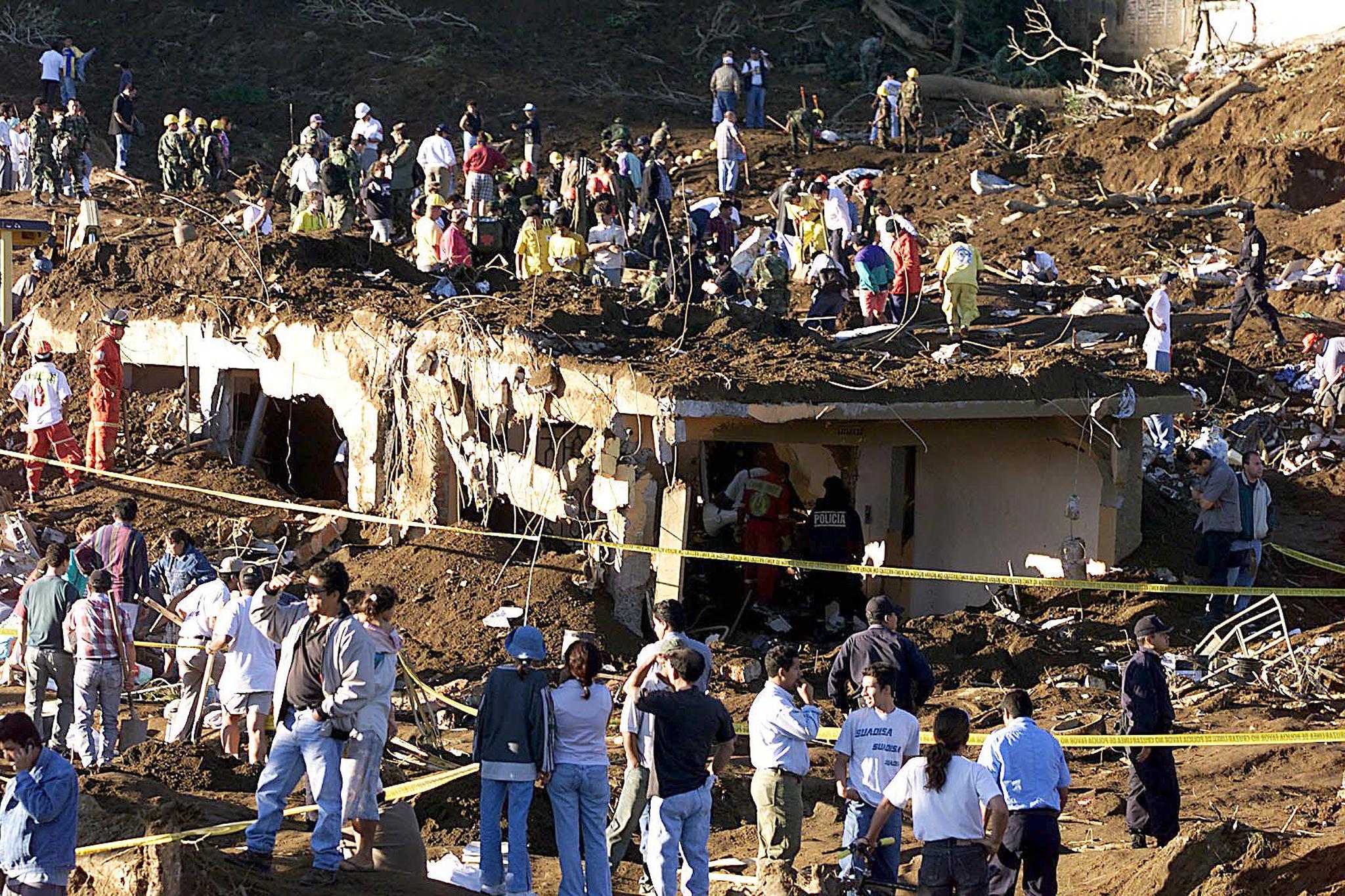
Amid the national tragedy left by the earthquakes of January 13 and February 13, 2001, a controversial corruption scandal emerged that later implicated former presidents Francisco Flores and Elías Antonio Saca, as well as senior executives of the ARENA party.
Although there were efforts to conceal a scheme involving the misuse of public funds, subsequent investigations revealed that between October 2003 and April 2004 the government of Taiwan, led at the time by President Chen Shui-bian, delivered at least three checks totaling $10 million in donations to El Salvador. The funds were diverted and never recorded by the Technical Secretariat for External Financing, the government body responsible for coordinating and monitoring international cooperation resources.
The plight of more than 1.5 million earthquake victims prompted an outpouring of international solidarity. However, it also fueled ambitions among sectors that allegedly took advantage of the emergency to improperly appropriate resources intended to ease the suffering of those affected.
Part of the $10 million donation was earmarked for the construction of housing for residents of Las Colinas, one of the communities hardest hit by the 7.7-magnitude earthquake that struck on January 13, 2001, at 11:35 a.m. Plans also included the creation of a memorial park to honor the 525 victims buried by landslides.
At a press conference in January 2014, Alejandro Flores, president of the Las Colinas community board, stated that residents received some assistance from Taiwanese cooperation funds. However, he clarified that this support came from different resources and that the destination of the $10 million donation was never known to them.
-

 International4 days ago
International4 days agoDeadly van accident near Brazil border leaves 11 dead in Bolivia
-

 International4 days ago
International4 days agoU.S. to host Danish and Greenlandic Foreign Ministers at the White House
-

 Central America4 days ago
Central America4 days agoU.S. and El Salvador maintain close partnership, embassy says
-
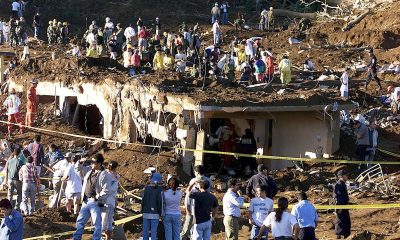
 Central America4 days ago
Central America4 days agoTaiwan’s $10 million donation after 2001 earthquakes allegedly diverted in El Salvador
-
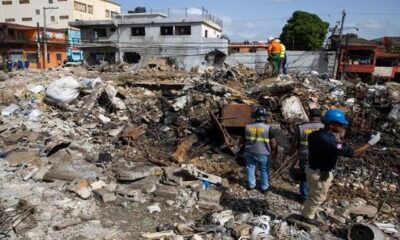
 International4 days ago
International4 days agoDominican court postpones hearing in deadly nightclub collapse case
-

 International4 days ago
International4 days agoPolice hunt gunmen after fatal shooting in Corsica
-
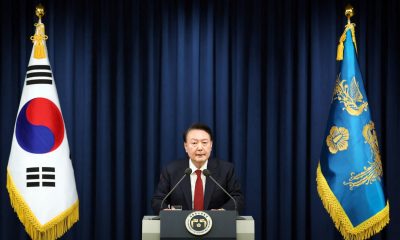
 International4 days ago
International4 days agoEx-President accused of bid to establish dictatorship as verdict nears in South Korea
-

 International4 days ago
International4 days agoVenezuelan opposition leader dedicates Nobel Prize to Trump
-
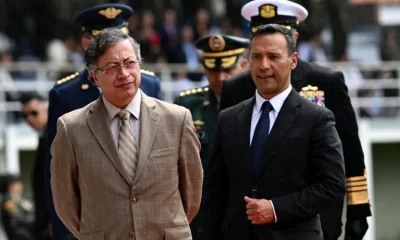
 International4 days ago
International4 days agoColombian Defense Chief Meets U.S. Officials to Advance Bilateral Narcotics Strategy
-

 International3 days ago
International3 days agoUkraine declares nationwide energy emergency amid russian attacks and extreme cold
-
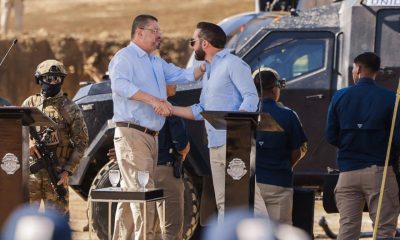
 Central America3 days ago
Central America3 days agoBukele warns crime can become a ‘parallel government’ during visit to Costa Rica
-

 International3 days ago
International3 days agoIran closes airspace amid U.S. threats and deadly nationwide protests
-

 International3 days ago
International3 days agoX moves to block Grok from creating sexualized images of real people amid legal scrutiny
-

 International3 days ago
International3 days agoHillary Clinton skips Epstein inquiry as house panel threatens contempt charges
-
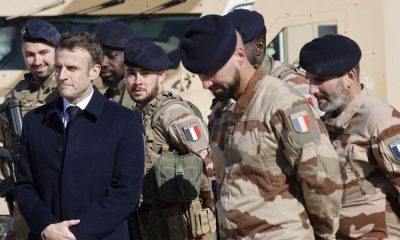
 International3 days ago
International3 days agoFrance joins Denmark’s ‘Operation Arctic Resistance’ in Greenland amid U.S. tensions
-

 International3 days ago
International3 days agoU.S.–Denmark tensions escalate as Trump pushes NATO to back U.S. claim on Greenland
-
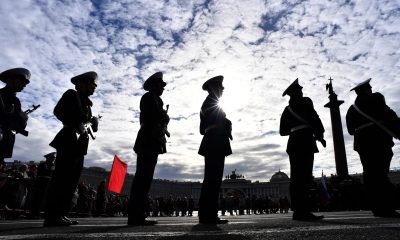
 International3 days ago
International3 days agoUK Intelligence estimates russian casualties in Ukraine at over 1.2 million
-
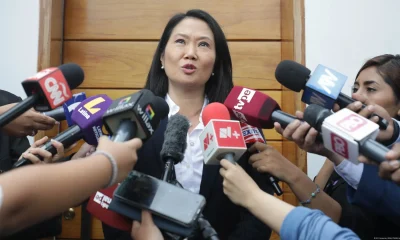
 International4 days ago
International4 days agoPeruvian Court Orders Definitive Dismissal of Money Laundering Case Against Keiko Fujimori
-
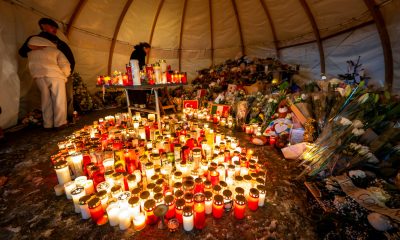
 International3 days ago
International3 days agoSwiss Canton of Valais Grants Emergency Aid to Victims of Crans-Montana Bar Tragedy
-

 International15 hours ago
International15 hours agoU.S. deportation flight returns venezuelans to Caracas after Maduro’s ouster
-

 International3 days ago
International3 days agoU.S. to suspend visa processing for applicants from 75 countries
-
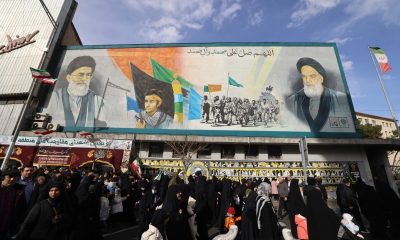
 International1 day ago
International1 day agoCanada accuses Iran of killing its citizen during anti-government unrest
-

 International1 day ago
International1 day agoSheinbaum highlights anti-drug gains after U.S. says challenges remain
-

 International15 hours ago
International15 hours agoFormer South Korean President Yoon sentenced to five years in prison


























